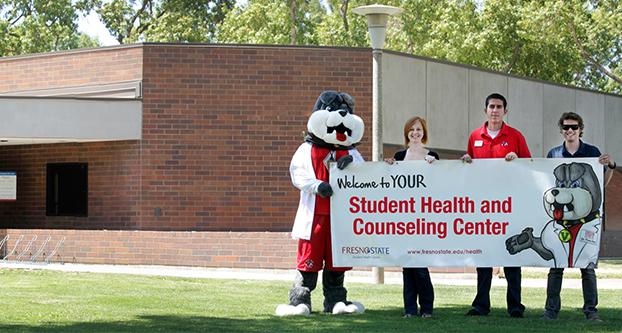Fresno State went down 10 spots on Trojan’s Sexual Health Report Card Ranking, making the campus rank 50 — the campus ranked 40 last year.
The Trojan report “is an annual ranking of the sexual health resources and information available to students on campus nationwide,” according to its website.
Colleges are ranked based on 11 categories such as the quality of sexual health information and resources on the campus website, if condoms are available on campus, the availability of HIV and STI testing and more.
“Sexually transmitted infections (STI) are infections transmitted usually through vaginal sex, but also through oral, anal or other sexual contact,” said Dr. Ruth Avila, a Student Health and Counseling Center physician.
Whereas sexually transmitted diseases (STD) are diseases that are passed from one person to another through sexual contact, according to Centers for Disease Control and Prevention (CDC). STDs and STIs are different, but the terms are commonly used interchangeably.
According to a 2015 California Department of Public Health report, “the number of reportable STDs in California is rising at a faster pace compared to the rest of the country and is at a 20-year high.”
The report found in 2015 that there were 249,224 cases of STDs in California.
In 2012, there were 7,788 reported cases of STDs in Fresno County, according to the Fresno County Sexually Transmitted Disease annual report.
“Besides chlamydia, recently, syphilis has also increased in the Central Valley,” Avila said.
The report said there were 6,213 cases of chlamydia, 1,527 cases of gonorrhea, 12 cases of primary syphilis and 36 cases of secondary syphilis in 2012.
“I guess it’s a problem — everyone seems to be having one [STD],” said Luke Leija, a history major. “I haven’t, but friends [have].”
Avila said once someone has an STD, it affects a person physically, mentally and emotionally.
“Physically — even if they don’t have symptoms, they can eventually develop symptoms,” Avila said. “Symptoms being like vaginal discharge or penile discharge — when they urinate, they might have some burning.”
When getting treated, people with STDs have to prepare themselves mentally. The patient is given antibiotics and should not participate in intercourse for at least seven days.
“They may use condoms,” Avila said, “but the problem is that a lot of people don’t use condoms correctly or the condom tears so we tell them that it’s best [to have] no intercourse.”
If an individual is tested positive, they should notify their current partner as well as their previous partners about their result so they can seek treatment.
For example, Avila said if their previous partner tested negative, he or she should still get treated.
“If a person is negative, it’s not because they don’t have the organism, it could be that they don’t have enough organism to make the test positive,” Avila said. “Don’t wait until your test turns positive or you have symptoms [to get treated].”
According to the Fresno State Student Health and Counseling Center, 75 percent of women infected with chlamydia and up to half of infected men have no symptoms — most STIs do not show symptoms.
People who are sexually active should get tested at least once a year whether or not they have symptoms, Avila said.
Students can go to the student health center’s website and request for a STD testing appointment.
“If the test is less than $20, then the health fee covers it. If the test is more than that, we just charge what the lab charges us,” Avila said.
According to CDC, in order to prevent STDs, use condoms, have fewer partners, get vaccinated, talk with your partner about STDS, and get tested.
However, “abstinence is probably the most reliable, the surest way to avoid STDs,” Avila said.





